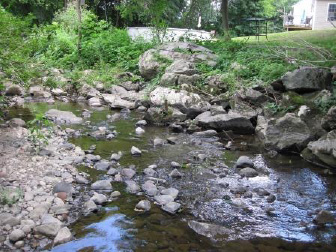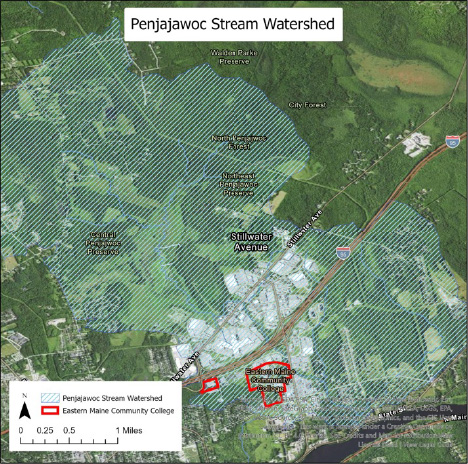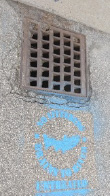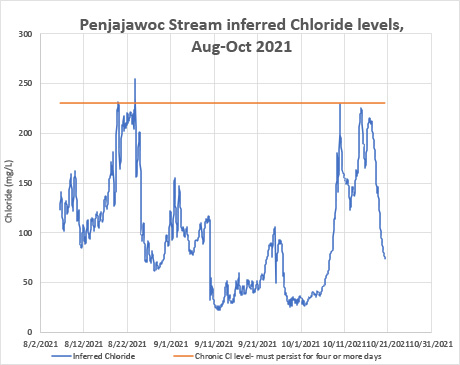Penjajawoc Stream

Penjajawoc Stream is located on the eastern edge of Eastern Maine Community College’s (EMCC’s) campus along Hogan Road. The entire campus drains into this stream, which is designated as an Urban Impaired Stream (UIS) by the Maine Department of Environmental Protection (MDEP). This means that it does not meet water quality standards set by the Clean Water Act, specifically in terms of dissolved oxygen and aquatic life.


Storm Drain Stencil
To protect the stream from pollution, EMCC has taken several proactive steps to ensure the health of Penjajawoc Stream. These steps include participating as a stakeholder in a 2008 watershed management plan developed by the City of Bangor, which will be updated in the coming years. In addition, EMCC has installed various stormwater best management practices (BMPs) throughout the campus to infiltrate runoff and remove pollution before it enters the stream. These BMPs include pervious pavement, underdrained soil filters, bioretention basins, and a retention pond. In addition, EMCC conducts regular campus wide clean-ups and stencils clean water messages near storm drains to educate staff and students that the storm drains directly runoff to Penjajawoc Stream without treatment and should only be used for rainwater. 
One potential pollutant of concern for Penjajawoc Stream is chloride. Excess chloride in small streams can impact sensitive aquatic insects that are an important food source for fish and are representative of the overall health of the stream. The MDEP has been monitoring chloride at Penjajawoc Stream since 2015. The most recent data is from the August-October of 2021 and can be seen below.

The horizontal straight line identifies the “chronic” level of chloride in fresh water (230 mg/L), that can be harmful to aquatic insects. Chloride levels in the stream can exceed this level, even in the summer, due to baseline chloride levels in the groundwater from years of chloride use in the area. The primary source of chloride at EMCC is winter road salt (sodium chloride) applied on campus. To lower the potential for chlorides from EMCC to enter the Stream, we are taking the following steps:
- We are participating in a regional effort to reduce road salt usage through annual training for winter maintenance staff, tracking road salt usage, and meeting annually to share what techniques have worked well for each community. This effort is being conducted through the Bangor Area Stormwater Group. You can find more information on this effort on the Bangor Area Stormwater Group website: https://www.baswg.org/chlorides/
- We will be experimenting with closing some infrequently used parking areas during the winter months. These areas will be left unplowed and will not be treated with road salt. This will allow EMCC to reduce the amount of road salt used on campus. If you see any parking areas unplowed, it is likely a part of this effort to reduce pollution to Penjajawoc Stream.
If you have any questions or concerns, please contact tadam@emcc.edu

